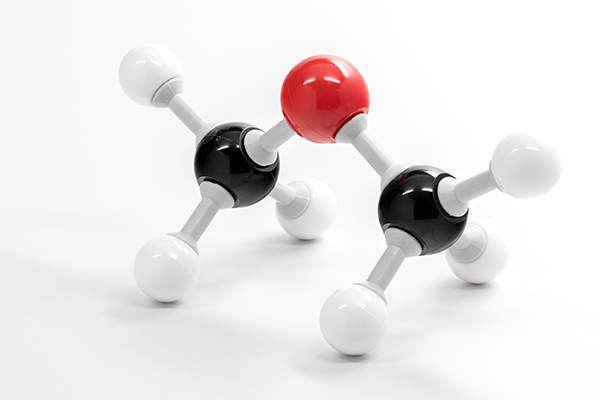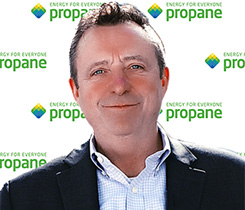Oberon Fuels begins commercial production of renewable DME

Dimethyl ether, pictured, handles similarly to propane, and the two fuels can be blended together. (Image: knowlesgallery/iStock / Getty Images Plus/Getty Images)
Oberon Fuels, a producer of dimethyl ether (DME) transportation fuel, began production of the first-ever renewable DME (rDME) in the U.S. and the only current commercial production of this molecule in the world, the company says.
As part of a $6 million project funded in part by a grant from the California Energy Commission, Oberon is converting waste methanol into rDME at its facility in Brawley, California.
In addition to waste methanol, potential feedstocks to create rDME include biogas from dairy waste, food wastes, agricultural waste, and excess electricity and CO2, resulting in ultra-low carbon to carbon-negative DME.
“This is a critical step on the path to decarbonizing the transportation sector,” says Elliot Hicks, chief operating and technology officer and an Oberon Fuels co-founder. “Our innovative approach uses waste resources to create a flexible molecule that can reduce emissions from fossil fuels, as well as create entirely new, super-clean fuels.”
rDME has multiple pathways to reducing the carbon footprint of the transportation sector, according to Oberon, such as a diesel replacement, a blend with propane and a way to move renewable hydrogen. DME is a hydrogen-rich molecule that handles like propane. It can be produced at or near renewable feedstock sources using Oberon’s modular production technology.
Because rDME is compatible with propane, it requires minimal modifications to the existing global LPG distribution network and workforce, the company says. In 2020, Suburban Propane Partners acquired a 39 percent equity stake in Oberon Fuels.
“As one of the longest-standing propane companies in the United States, Suburban Propane is committed to offer our time-honored network, expertise and infrastructure to support Oberon Fuels in leading the way towards the future of our industry,” says Michael Stivala, president and CEO of Suburban Propane Partners. “Oberon’s production of renewable DME is not only a milestone for the company, it’s also a breakthrough for the global LPG industry as we seek new approaches to meet increasing customer and regulatory demands for cleaner fuels. Propane is already known for its versatile, cost-effective and clean burning attributes. Given the compatibility of these two molecules, we can immediately offer an even cleaner alternative for the transportation sector and beyond.”
















